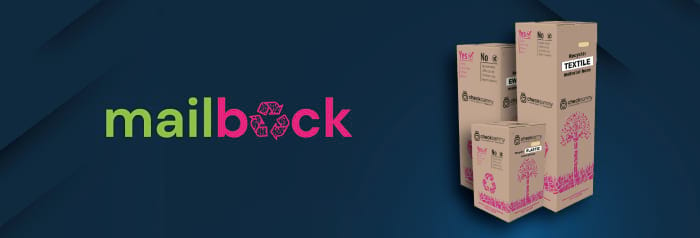The Power of Sustainability: Future-Proofing Your Business
Businesses play a unique and significant role in upholding sustainable practices. As powerful entities that shape economies and influence societal norms, organizations are uniquely positioned to lead by example in promoting sustainability – and more consumers are looking toward the businesses and brands they purchase from to lead the way.
Making sustainability a priority is an important way to future-proof your business. Today’s consumers are more environmentally conscious than ever and are looking to align themselves with brands that reflect their values and are making a genuine effort to reduce their environmental footprint. By embracing sustainability, your business can increase its competitive edge, foster customer loyalty, and drive innovation.
Today we’re exploring how to integrate sustainability into your business’s core values and operations to help you start walking the walk. Let’s get started.
The Value of Sustainability in Business
Consumer behavior has significantly shifted in recent years, with more people actively seeking out environmentally conscious businesses. According to a study by Nielsen, almost three-quarters of Millennial consumers are willing to pay extra for sustainable offerings, a trend mirrored by 66% of global consumers overall. This growing demand for sustainable products and services is redefining the market landscape, and businesses that respond to this demand will be better positioned to thrive.
But it isn’t just consumer demand that highlights the value of sustainability. Numerous studies have established the financial benefits businesses can reap from implementing sustainable practices. Research out of the University of Oxford demonstrated that companies with robust sustainability practices have better operational performance and are less risky. In addition, research by the Harvard Business School found firms that adopted environmental, social, and governance policies outperformed those that didn’t.
Incorporating sustainability into your business model does more than just increase profits and widen your customer base; it helps future-proof your business. Forward-thinking leaders are recognizing that sustainability is key to long-term success. It drives innovation, fostering new ways of thinking about products, processes, and business models. Companies with strong sustainability practices are typically more resilient, better prepared for regulatory changes, and more attractive to top talent. But how do you demonstrate your commitment to sustainability? It starts with integrating sustainability into your core values.
Establishing a Sustainability Mission
Sustainability can take many forms, depending on the nature and scale of your business. Let’s look at a few examples.
- A manufacturing company: might focus on reducing waste and improving energy efficiency in its operations.
- A hotel: could switch out single-use plastics in hotel rooms with reusable glass and silverware, and replace single-use to-go containers with recyclable food packaging. They might add organics recycling as an initiative to help reduce food waste sent to landfills.
- A tech company: could prioritize responsible sourcing of materials or creating energy-efficient products. They would also emphasize e-waste recycling to ensure no old electronics get sent to the landfill.
- A consulting firm: might concentrate on becoming carbon neutral and promoting eco-conscious behaviors among its workforce.
- A university: could implement a campus-wide recycling program that includes education and smart recycling bins, and create a textile recycling initiative with separate collection bins for recycled used clothing.
Essentially, how your business defines sustainability will depend on your industry, size, and specific operational context.
Having a clear sustainability mission will not only help your organization stay focused and consistent in its sustainability efforts, but it will communicate to your stakeholders – employees, customers, and investors – your commitment to sustainable practices. This helps build trust, loyalty, and enhances your reputation.
Here are some steps to create a sustainability mission that aligns with your company’s values and objectives:
- Understand Your Impact. Evaluate your business’s current environmental and social impact. This could include examining your energy use, waste generation, supply chain practices, and more.
- Identify Your Sustainability Priorities. Based on your evaluation, identify the areas where you can make the most significant sustainability improvements. As demonstrated in the examples above, focus on areas that align with your business’s core operations and values.
- Set Clear, Measurable Goals. Once you’ve identified your priorities, set specific, measurable, attainable, relevant, and time-bound (SMART) goals. These could range from reducing carbon emissions by a certain percentage, shifting to renewable energy sources, or implementing a comprehensive recycling program.
- Develop an Implementation Plan. Your plan should outline the strategies and initiatives you’ll implement to achieve these goals. Consider partnering with experts or organizations that can help you achieve your objectives.
- Communicate Your Mission. Once your sustainability mission is clear, communicate it effectively to all stakeholders – both internal and external. Remember, transparency is key in building trust.
Creating a sustainability mission is not just a strategic move; it’s a commitment to a better future. It should be a reflection of your business’s desire to make a meaningful, lasting impact on the world while continuing to grow and thrive.
Operationalizing Sustainability
Operationalizing sustainability means embedding it into every aspect of your day-to-day business operations. Whether this step comes before or after establishing your sustainability mission, the two should go hand in hand. Incorporating sustainability efforts into your business operations can help reduce costs, boost employee morale, and enhance your brand reputation. Here are some key ways to make your operations more sustainable:
- Improve Resource Efficiency. Efficient use of resources not only reduces your environmental impact but can also significantly lower operational costs. Consider implementing:
- Energy efficiency measures – Such as upgrading to energy-efficient lighting or equipment, optimizing heating and cooling systems, and harnessing renewable energy sources where possible.
- Water conservation efforts – Like installing low-flow fixtures and implementing rainwater harvesting systems.
- Minimize Waste: A robust waste reduction program is crucial for sustainable operations. Start by conducting a waste audit to identify the major sources and types of waste your business generates. Then, implement strategies to reduce, reuse, and recycle. This might involve reducing paper usage by digitizing documents, promoting reuse by selecting durable over disposable items, and setting up a comprehensive recycling program with well-labeled smart recycling bins throughout your facilities.
- E-Waste Recycling: Electronic waste, or e-waste, is one of the fastest-growing waste streams globally. Businesses can help mitigate this by responsibly recycling old electronics, including computers, printers, and mobile devices. Partner with certified e-waste recycling companies like CheckSammy to ensure your discarded electronics are properly handled and don’t end up contributing to electronic waste pollution.
- Textile Recycling: For businesses in the fashion, hospitality, or healthcare sectors, textile waste can be a significant issue. Consider partnering with textile recycling firms like CheckSammy that can help turn old uniforms, linens, or other fabric products into new items or raw materials.
- Cleaning Supply Recycling: Consider using eco-friendly cleaning supplies that come in bulk, refillable containers. Some companies even take back their containers for recycling, reducing the volume of plastic waste your business produces. If you aren’t able to switch to more eco-friendly containers yet, make sure to responsibly recycle cleaning supplies to ensure the chemicals are handled properly.
Remember, operationalizing sustainability isn’t an overnight process; it’s an ongoing commitment that requires regular evaluation and adjustment.
Go All in on Sustainability
Incorporating sustainability into your business’s core values isn’t just a nice gesture – it’s a strategic necessity in today’s business landscape. Businesses that lead with sustainability will discover significant benefits, from cost savings and increased efficiency to improved reputation and customer loyalty.
Embarking on a sustainability journey may feel daunting, but working with a professional sustainability partner makes it much more manageable. If you’re interested in seeing how CheckSammy can help support your sustainability vision, contact us today.
See Our Services
Create a custom solution to meet your waste and sustainability goals. Contact us today!
Continue reading
Dive deeper into the CheckSammy Blog by reading one of our posts below
Feeling the Pain of Higher Resident Turnover? Apartment Junk Removal Can Help
If you’re a property manager, you’ve probably had a significant increase in tenant turnover over the last couple of years. So it’s no wonder apartment junk removal may be top of mind for you right now. There are several reasons for this shift. For one, the housing market is on fire right now. In 2020 […]
Read More About Feeling the Pain of Higher Resident Turnover? Apartment Junk Removal Can HelpSetting Up a Community E-waste Recycling Program
E-waste is the fastest-growing municipal waste stream according to the EPA, yet e-waste recycling isn’t keeping pace. In fact, only 12.5% of all e-waste is recycled, reports the EPA. Starting a community e-waste recycling program is a terrific way to ensure hazardous e-waste, like lithium-ion batteries, doesn’t end up in your community’s landfill. Creating an […]
Read More About Setting Up a Community E-waste Recycling ProgramWaste Management’s Role in the Circular Economy
Establishing a waste management program for your business or community is one of the best ways you can contribute to the circular economy. Here’s everything you need to know about waste management’s role in the circular economy (and how to get involved). What Is the Circular Economy? Our current economic model is all about taking […]
Read More About Waste Management’s Role in the Circular Economy5 Reasons to Consider a Textile Recycling Program for Your Organization
Americans sent more than 17 million tons of textiles to landfills in 2018, a volume that is only increasing every year, reports the Environmental Protection Agency. When you think about the fact that it can take over 200 years for textiles to decompose, it’s easy to grasp how large textile waste’s contribution is to the […]
Read More About 5 Reasons to Consider a Textile Recycling Program for Your Organization8 Benefits of Environmentally Friendly Power Washing Services
If you’re into maintaining the curb appeal of your business or home, then you’ve probably heard of pressure washing. Pressure cleaning involves using high-pressure water spray to remove grime, mold, dust, paint, mud, and other junk from objects or surfaces. Many people worry that pressure washing isn’t good for the environment, but this couldn’t be […]
Read More About 8 Benefits of Environmentally Friendly Power Washing ServicesWhy Our Customers Love Our Full-Service Junk Removal
If you’re looking for full-service junk removal services, you’ve come to the right place. CheckSammy is a one-stop shop for all your junk removal and sustainability needs. From our affordability, simplicity, and unrivaled turnaround times to our innovative sustainability solutions and patented technology and data, it’s clear why some of North America’s biggest companies choose […]
Read More About Why Our Customers Love Our Full-Service Junk RemovalTips for a Stress-Free Move From An Eco-Friendly Junk Removal Company
What does an eco-friendly junk removal company know about moving? Quite a lot, actually. Moving can be an especially chaotic time. You have to pack everything up, get rid of unwanted items, clean your property, load everything up, and move your things to your new location. That doesn’t even include the unpacking and resettling period. […]
Read More About Tips for a Stress-Free Move From An Eco-Friendly Junk Removal CompanyCollege Junk Removal Tips for Student Move-In Day
As the new school year gears up, colleges across the country are looking for ways to clean up their campuses before the new year begins, and many of them want to do so sustainably. College junk removal isn’t easy, though, especially around move-in week—and when trying to do so sustainably. As students move in and […]
Read More About College Junk Removal Tips for Student Move-In Day8 Items Hospitality Businesses May Not Know They Can Recycle
One hotel guest produces 2.5 pounds of trash every single day. Just a single hotel room produces around one cubic yard of waste each month, which totals 200 gallons of waste per room every month. Most of this waste goes straight to the landfill, even though research shows that up to 60% of it is […]
Read More About 8 Items Hospitality Businesses May Not Know They Can Recycle












